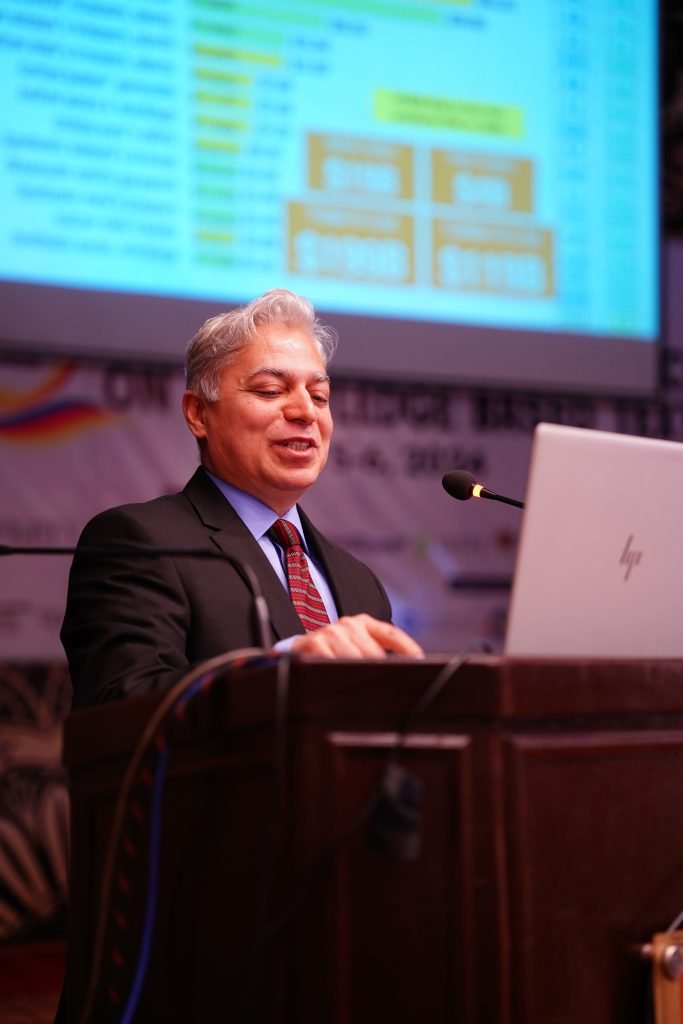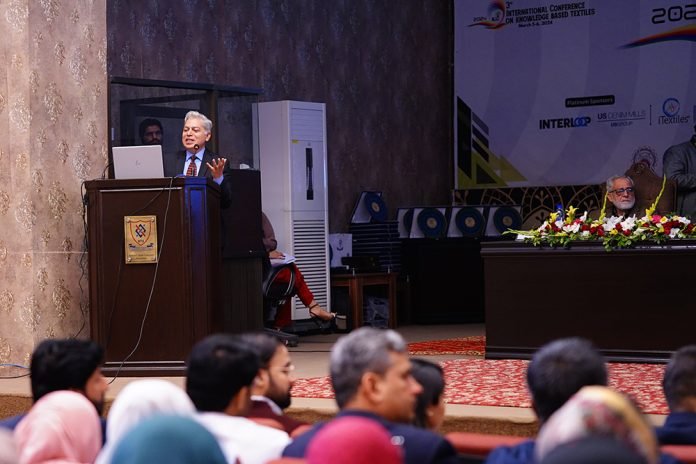Rector National Textile University Prof Dr Tanveer Hussain has said out of total textile trade of $956 billion Pakistan’s share is only $18.06 billion urging textile entrepreneurs to go for value addition.

Conference Secretary Dr Muzammil Hussain delivered the welcoming note. He stressed that the conference would play a key role in shaping the economy of Pakistan and introducing value-added products through product diversification in the market. He thanked all sponsors, delegations, universities, industries and textile associations including PTEA, PHMA, PRGMEA, APTMA, APBUMA, CLOA and the Dyes & Chemical Association of Pakistan.
Media Secretary Hassan Iftikhar Ahmed introduced more than 30 plus ready-to-market and scalable products under the grand challenge fund funded by the Higher Education Commission of Pakistan. Among these are banana fabric, sisal fibre apparel, waste leaves fabric, puncture-resistant fabric, multifunctional yarns, increased capacity of power loom, melt spinning machine for recycled polyester, IR shielding fabric and sheep breeds wool/cotton blended fabric.
Dr Shahid Rasool from Northumbria University, UK, said the NTU and his university needed to make a collaborative partnership to develop an ecosystem of textile manufacturers and use combined resources to achieve targets. He emphasized: “We need to make speedy efforts for joint funding, joint commercialisation and mobilise the faculty and student exchange process.”
Navid Gulzar, a member of the Board of Governors, NTU, and the All Pakistan Textile Association, emphasised the importance of the production of better-quality fibres and the need to make collaborative efforts to compete in the cutting-edge industry revolution. He highlighted the importance of producing high-quality products from the textile industry by upgrading the technology.
Khawaja Muhammad Amjad from the Pakistan Hosiery Manufacturing Association said Pakistan had abundant natural resources and had a unique geo-political situation. “However, we lacked sustainable and industry-supported policies and the government should play its role in introducing friendly policies for agriculture and industrial sectors,” he added.
Muhammad Idrees, Vice Chairman of the Pakistan Exporters Textile Association, said: “We should work on lean manufacturing processes and advancement in sustainable textiles. We must take diverse steps in productivity, efficiency, eco-friendly quality control systems and social ethics.”



